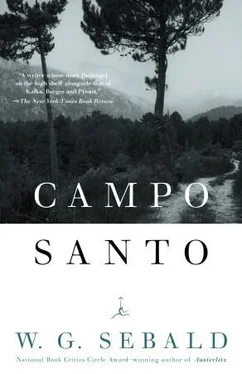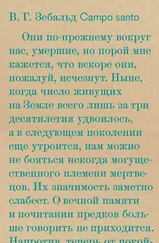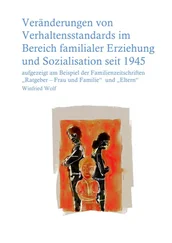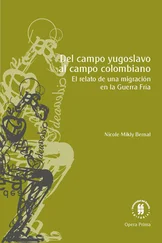The closing sequence of the film Fitzcarraldo also had special associations for me. Amid unspeakable difficulties, a path is cut through the jungle and the steamer is hauled by means of primitive winches over the mountain crest between the two rivers until finally, when the mad plan has been as good as realized, it rocks gently in the water again. On the night of the festivities, however, the Jívaros, wishing to take another route, cut the cable and the steamer goes racing out of control down to the valley, between the rocky walls of the Pongo des Muertas. Fitzcarraldo and his Dutch captain see nothing but disaster coming, while the Jívaros, gathered on deck, merely look ahead in silence, believing that it is not far now to the better country they long for.
And in fact the ship does miraculously escape the cataracts of death. Somewhat battered and out of shape, but with the elegance of a prima donna, it moves out of the dark jungle in a great arc on the river, which is radiant with bright light. This is the hour of salvation in which — another miracle — news comes of the arrival in Manaus of an Italian company with an opera by Bellini, and here they come in several boats, to climb aboard and begin to play and sing. Behind the Puritans’ pointed hats rises the cardboard backdrop of the mountains, which the libretto assures us are near Southampton. Chubby-cheeked Indians blow the French horn more beautifully than angels, and Rodolfo and the crazed Elvira, who has regained her reason now that the plot has taken a happy turn, unite their voices in a duet raised by the separation of their bodies to a state of pure bliss, ending with the words Benedici a tanto amore . All this time the ship of fools is drifting down the silvery river, so Fitzcarraldo’s dream of an opera in the middle of the wilderness at last comes true. He himself stands leaning on a red theater seat smoking an enormous cigar, listening to the wonderful music and feeling the slight breeze of their passage on his brow.
I encountered I Puritani for the first time at the age of twenty-two, in the house of a colleague who was a Bellini enthusiast and lived on Fairfield Avenue in Manchester, not far from Palatine Road, where the young engineering student Ludwig Wittgenstein stayed in 1908. It was a day as fine as another more than twenty years later, when I was sitting in my garden with a bad headache after finishing a work about torture that had occupied me for some time, and I heard the same opera again through the open window, broadcast from Bregenz. I still remember my sensations as the painkillers gradually began to work, and I felt the music of Bellini mingling with their analgesic effect like a relief and a blessing. I could hardly take in the fact that in addition it came through the summery blue of the ether from Bregenz, for the Bregenz Festival was inextricably bound up in my memory with the Singspiel Zar und Zimmermann , always performed in the lakeside theater there year after year without fail.
The Bregenz Festival and the clog dance had been one and the same thing in my mind as far back as I can remember. If you went from S. to Bregenz on the Alpenvogel bus, you were going there to see the clog dance. The clog dance, along with various pieces by the composer Flotow and the famous aria from the Evangelimann , used to be the music that always came top in the Sunday request concert broadcast every Sunday by Bavarian Radio; we regularly listened to it at home after the children’s program. Nothing could compete, except perhaps the Don Cossacks and the Soldier on the Banks of the Volga , or the chorus of captives from Nabucco .
I could not really account for the nature of this potpourri at the time, but today it seems to me that these dubious German preferences had something to do with the time when the sons of the fatherland were sent east. So dazzlingly bright were the vast Ukrainian fields of grain, I read not long ago, that many of the German soldiers who passed through them in the summer of 1942 wore sunglasses or snow goggles to avoid damaging their eyes. When the 16th Panzer Division reached the Volga at Rynok north of Stalingrad on August 23 as the light was fading, they saw beyond the opposite bank a country of deep green woods and fields apparently stretching away to infinity. Some of them, we know, dreamed of settling here after the war; others may have sensed already that they would never return from that distant land.
Teure Heimat, wann seh’ ich dick wieder (“Dear homeland, when shall I see you again?”) runs the opening of the German version of the chorus “Va pensiero,” and in a way it was code for the vague feeling, never to be uttered aloud, that the Germans were the real victims of the war. Only in the aftermath of the so-called reparations did anyone think of giving the Hebrews their own rights and, for instance in a production of Nabucco at Bregenz in the mid-nineties, making the anonymous slaves into real Jews in striped uniforms. Soon after the beginning of that particular season I took part, as I still regret, in one of the events in the framework program of the festival, and in addition to my fee was given two tickets for the performance of Nabucco that evening. Holding these tickets, I stood undecided outside the theater until the last of the spectators had disappeared through the entrances: undecided because with every passing year I find it increasingly impossible to mingle with an audience; undecided because I did not want to see the chorus dressed in costume as concentration camp inmates; and undecided because I saw a storm coming up behind the Pfänder and unlike other visitors to the festival had not thought of bringing an umbrella. As I stood there a young lady came up to me, probably because I looked like someone let down by his companion, and asked whether by any chance I had a spare ticket. She had come a long way, she said, and was disappointed to find that there were no tickets available at the box office. When I gave her my two tickets and wished her a pleasant evening she thanked me, a little dismayed to find that I did not want to see the Bregenz performance of Nabucco with her, as she might well have expected.
Half an hour after missing this opportunity I was sitting on the balcony of my hotel room. Thunder rolled across the sky; the rain soon began pouring down and it suddenly turned very cold, which did not surprise me, for it had snowed the day before in the upper Engadine even though it was midsummer. Now and then lightning flashed, briefly lighting up the Alpine garden that covered the whole slope behind the hotel. It had been laid out in long years of work by a man called Josef Hoflehner, with whom I had struck up a conversation on the afternoon when I saw him working in his rockery. Josef Hoflehner, who must have been well over eighty, told me that during the last war he was a prisoner in a wood-cutting squad in Scotland, working in Inverness and all over the Highlands. He had been a schoolteacher by profession, he told me, first in upper Austria and then in Vorarlberg. I don’t remember what made me ask him where he had trained, but I remember he told me it was in Kundmanngasse in Vienna, in the same institution and at the same time as Wittgenstein. He called Wittgenstein a prickly character, but would say no more about him.
Before going to sleep that evening in Bregenz, I read the last pages of a biography of Verdi, and perhaps for that reason I dreamed of the way the people of Milan, when the maestro lay dying in January 1901, put down straw in the street outside his house to muffle the sound of the horses’ hooves, so that he could pass away in peace. In my dream I saw the street in Milan covered with straw, and the carriages and cabs driving soundlessly up and down it. At the end of the street, however, which went uphill at a curiously steep angle, there was a deep black sky with lightning flashing over it, just like the sky Wittgenstein saw as a boy of six from the balcony of the family’s summer house on the Hochreith.
Читать дальше












